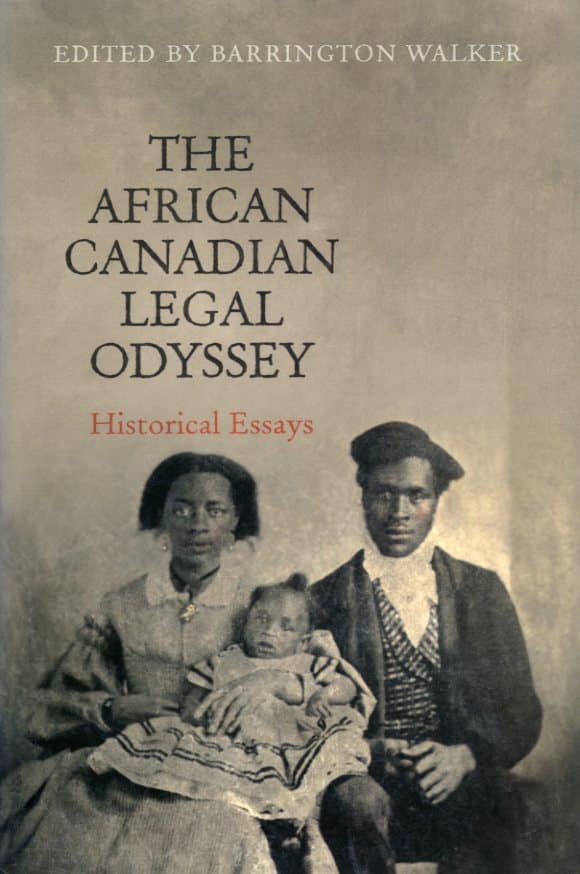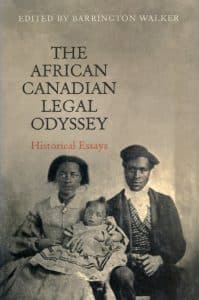February is Black History month in Canada. It is a time when, across the country, people, organizations, and institutions recognize and celebrate the achievements of African Canadians. Canada’s history is rife with stories of the many contributions that African Canadian pioneers and organizations have added to the Canadian multi-cultural mosaic.
The legal profession includes several accounts of the role African Canadian lawyers and judges have played in the development of Canada’s legal landscape. Their significant contributions to the law, and to society in general, have added a unique perspective to Canada’s legal history.
In Alberta, Violet King, an African Canadian lawyer, is considered a legal pioneer having been the first African Canadian law student to graduate from the University of Alberta in 1953. She was also the first African Canadian to be admitted to the Alberta Bar on June 2, 1954 and the first African Canadian woman to practice law in Canada.
In 1964, Lionel Locksley Jones was the first African Canadian man admitted to the Law Society of Alberta. He was a Crown Prosecutor with the Office of the Attorney General of Alberta before being appointed the Provincial Court of Alberta in 1977. He was the first African Canadian to sit on the Court of Queen’s Bench when he was elevated in 1995.
The Law Society of Alberta, 113 years after its establishment in 1907, elected the first African Canadian Bencher in 2020. Kene IIochonwu was born in Nigeria where, in 1997, he received a law degree from Abia State University and a licensure from the Nigerian Law School Abaja in 2000. Before immigrating to Canada, he also received a Masters of Law degree from the University of Strathclyde in Glasgow, Scotland in 2004.
In 2020, Kaycee Madu became the first African Canadian Minister of Justice in Canada. Born in Nigeria, he graduated from the University of Lagos with a Bachelor of Laws degree. In 2005, he migrated with his family to Edmonton where he worked for Alberta Hospital, Legal Aid Alberta and the Government of Alberta before being elected to the Alberta legislature in 2019.
When Canadians think of race relations thoughts often go to the historical interactions between Indigenous and non-Indigenous peoples. Rarely is consideration given to relations between Canadians of European backgrounds and African Canadians. Canadians tend to view the stresses, real or imagined, between these two groups as more of an issue for our southern neighbours where matters related to slavery, the Jim Crow laws and the civil rights movement dominate race related discussions to the present day.
However, history shows that Canada too has a history of oft difficult race relations with its African Canadian population that goes back to before the turn of the twentieth century. An edited collection of essays, published in 2012, traces the history of African Canadian communities in Canada and their connection to the law and legal profession. While the history of African Canadians is not nearly as extensive as the history of African Americans, nor as tumultuous, there are some striking similarities and there are lessons to be learned. There is no room, as some would have us believe, for Canadians to feel any sense of superiority over our southern neighbour when it comes to their relationship with Canada’s African community.
The collection of essays is organized thematically with chapters written by legal scholars and historians from across the country. This unique volume is a excellent addition to the history of law and society in Canada. It is also fundamental to further understanding the social and legal history of the African Canadian community in Canada. The book includes chapters on African Canadian lawyers and it details incidents of bigotry and segregation that are disturbing to read especially given the fact that African Canadians gained formal legal equality as early as 1833. The last section of the book explores the historical link between slavery, race and the law and illustrates how this tragic history continues to affect African Canadian peoples decades, and generations, later.
The book focuses primarily on the relationship African Canadians have with the law, while also exploring how other factors have significantly influenced this relationship. For example, the case studies examine how the economy, gender, as well as social and culture beliefs, have played a prominent in legal cases – both criminal and civil – involving discrimination and prejudice. The authors conclusions are that, while in principle African Canadians are equal in law, the reality is that they often face a legal disadvantage.
The law is human and thus imperfect. While it is meant to be objective., the law is a product and a reflection of the society in which it functions. Moreover, humans practice the law, whether as a lawyer, a judge or jury and they are susceptible to predisposed biases. Starting in the late nineteenth century, anti-African Canadian prejudice was common in Canadian society. This stemmed, in part, from the legacy of British and French colonialism and some of those historic influences have manifested themselves in Canadian society, and its courts, to the present day.
This collection of essays demonstrates the breadth and significance of the contributions that African Canadian people brought to Canadian society. Though this volume focuses on legal history, it is important to understand how, and why, other factors such as gender, commerce, society and culture have shaped African Canadian’s association with the law. There is no doubt that the social history of African Canadian is inextricably linked to the law.




